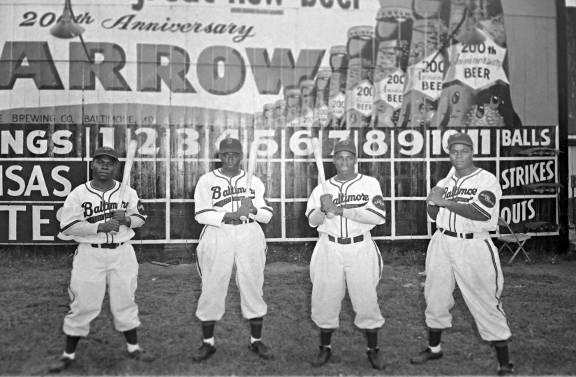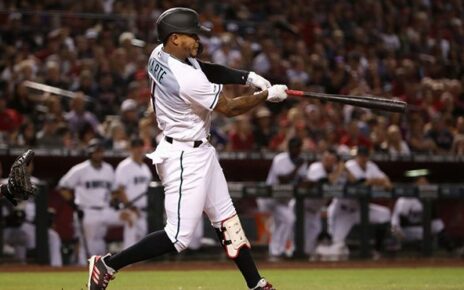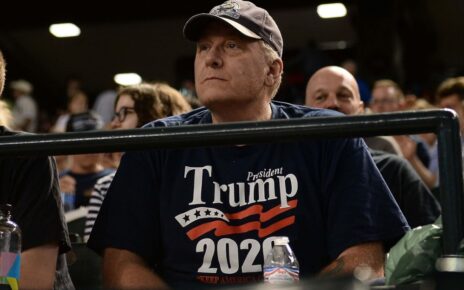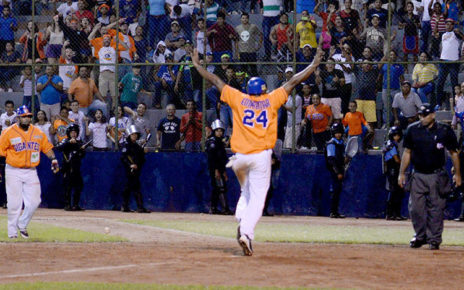I write about the Negro Leagues quite often. They are a favorite topic of mine, thus I find myself returning to them regularly. The Negro League series I have been producing at Banished to the Pen for almost a year now is the best work I think I’ve ever done. I don’t claim to be an expert on the Negro Leagues or some sort of authority on those various leagues, but I am a fan and someone who has researched the Negro Leagues plenty.
Sometimes my research into the Negro Leagues runs into a wall. That wall can be a lack of information, resources, or other statistic-based barricades. Occasionally that wall is because arbitrary decisions by Major League Baseball have made it where the Negro Leagues don’t get the respect they deserve. I can always turn to a website like Seamheads for my data, and they are by far the best resource for Negro League data. What I can’t do is turn to a website like Baseball-Reference and run anything through their wonderful Play Index and hope to get results from the Negro major leagues mixed in with all the other major leagues.
The reason for that is simple, not a single one of the Negro major leagues are actually considered major leagues. Digging into the issue reveals a lot of chatter, but not much in the way of concrete answers. Essentially what I have been able to cobble together from various sources is that MLB decides what constitutes a major league, and none of the Negro major leagues have been recognized by MLB as being major.
MLB, which is a brand and the governing body of two accepted major leagues, the American League and National League, gets to decide what is and isn’t a major league. The interests of MLB are MLB, they are not interested in furthering baseball or honestly celebrating the rich cultural history of the game outside of the leagues they govern. This being the case, one has to wonder why anyone ever thought it was a good idea for MLB to be allowed to arbitrarily decide what is and isn’t a major league?
The ability of MLB to make this decision is inherently tied into the place that MLB has created for itself in the world of baseball throughout its existence. MLB has carved out its place as the best league with the best players. As the league amassed influence, wealth, power, etc. it also accrued the ability to control the narrative so to speak. That meant that they could position their organization as the monolith of baseball. What they say is good for baseball, and they are big enough that they should not be questioned in their decision making. They don’t even need to show their work, because whatever results they decide upon are the truth of the situation.
With MLB established in such a position, it now became their job to adjudicate the history of their game. It’s no shock then that the people in charge of writing the history of baseball have been tied to MLB in some sort of official capacity. The decisions they made were the decisions that best helped to perpetuate the idea that MLB was the league among leagues that outlasted every other possible major league. Every summit and meeting with the intention of altering or codifying the history of the game of baseball has been overseen by people associated with MLB. The league with all the power made sure they had the people in place to craft the history they wanted the world to know.
As it pertains to the Negro major leagues and their lack of recognition by MLB as actual major leagues the issue of race is very important. MLB has never given the Negro major leagues any real consideration for inclusion as major leagues. They never will either, because that would mean honestly accepting that the Negro major leagues were close to, equal to, or better than what the white major leagues had to offer. The people in charge of the history MLB wants to put forth have changed through the years, but they have all remained steadfastly white and male. If you are able to look at the long list of men in charge of MLB’s official history of baseball and not see the way race factors in I’m not sure why you’re reading this article?
A few months back the lack of recognition for the Negro major leagues as actual major leagues moved to the forefront of issues I cared about. I reached out to the current Official Historian of MLB, John Thorn. I have respect for John, but the answer I received from him only further proved the idea of MLB controlling the narrative. I was directed to an article he wrote for his blog, Our Game, in May of 2015. Said article contained a small reference to when a 1968-1969 MLB Special Records Committee ruled that the National Association would no longer be recognized as a major league due to erratic scheduling and procedures.
When fielding a follow-up question about the arbitrary nature of such a statement and ruling Thorn cited the erratic scheduling and procedures of the Negro major leagues as the possible reasoning behind their continued lack of recognition as major leagues. I understand what Mr. Thorn’s role is as the Official MLB Historian, but that doesn’t make his answer sound any less like toeing the company line.
Scheduling and procedures were different in the Negro major leagues than what was found in MLB. They played fewer games over a shorter amount of time and had no problem with interleague play or barnstorming games counting towards official records. To this I say, so what? They weren’t MLB, they were not beholden to scheduling themselves as MLB did or following the same procedures as their white counterpart. To deny them status as a major league because they didn’t follow the same schedule or procedures as MLB is as weak of a reason as I can possibly muster in my head.
Another reason I have heard cited from others is that there aren’t enough known and cataloged Negro major league records for them to be included with the white major leagues. There’s no denying that there are gaps in the Negro major league records. Accurate records weren’t always kept, or have been lost to time because they were deemed unimportant in the past. Still, many fine folks have put in a lot of work to make it where the records we do have are as accurate as can be. The records of the Negro major leagues are missing some data, but they are more than enough to be looked at and counted as an adequate resource for historical purposes. Josh Gibson, Nip Winters, Bullet Rogan, and so many others should have their stats listed right alongside their white counterparts. Players like Satchel Paige, Willie Mays, and Hank Aaron should see their major league statistics buoyed by the inclusion of their stats from the Negro major leagues.
It’s clear that MLB has no desire to right the historical wrong they have created. The power to change the narrative MLB has created belongs with us. The most power to change the narrative is in the hands of the websites people use to discuss baseball. One of the three big powerhouses will need to budge. I’m not sure if it will be Baseball Prospectus, FanGraphs, or Baseball Reference who budges first, but one of them needs to add the recognized Negro major leagues to their major league search engine. When people are looking at their stats they should be able to search through the real history of the game, not the history MLB wants everyone to be able to search.
For too long the American League, National League, Union Association, Players’ League, Federal League, and American Association have been considered the only major leagues. It’s high time that those Negro Leagues considered by non-MLB baseball historians as being major are given their rightful place in history. The Eastern Colored League, American Negro League, Negro National League (both iterations), East-West League, Negro Southern League, and Negro American League were major leagues. Let’s start treating them as such because it’s our game, not MLB’s.
Lead photo courtesy of Paul Henderson – Paul Henderson Photograph Collection





2 Replies to “Why no Negro Major Leagues?”